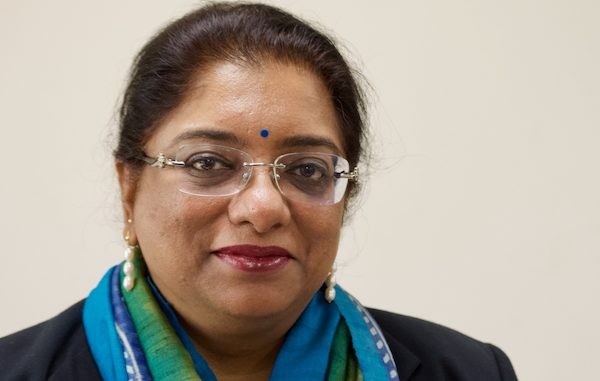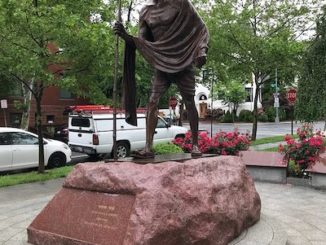
NEW YORK(TIP): Indian IPS Officer Chhaya Sharma, the erstwhile DCP South Delhi who cracked the 2012 Nirbhaya rape case, has been named one of the ‘2019 Asia Game Changers’byAsia society New York for ‘solving India’s biggest crimes and building a better society.’
On September 11, 2019, Asia Society announced its 2019 Asia Game Changers, a group of inspiring and path-breaking women who are making a transformative impact in Asia and beyond. In partnership with Citi, Asia Society annually honors game-changing leaders from a broad geographic range and varied backgrounds; this year marks the first time that all of the honorees are women.
“Our 2019 Asia Game Changers are women who have truly championed gender equality while making enormous contributions to society and social structures within their home countries,” Asia Society President and CEO Josette Sheeran said. “They are inspiring agents of change who are building a better world — for women and for everyone — by changing the rules, changing the game, and challenging all of us to follow their lead.”
When South Delhi Deputy Police Commissioner Chhaya Sharma received a call shortly after 2 a.m. on December 16, 2012, she responded immediately. The brutal, fatal gang rape of a 23-year-old student and assault on her male friend shook India to its core, inciting large-scale protests against the gruesome nature of the crime, together with a demand for justice for the victims.
Sharma vowed that justice would be served. As a woman leading a team of more than 40 investigators, she came to the case with a track record of not only solving some of Delhi’s toughest crimes, but also fundamentally shifting how such police work was carried out.
But the gang rape was different. With no witnesses at all, except the victims of the brutal crime, it was a challenge to identify and trace the perpetrators. “It was,” she admits, “like looking for a needle in the haystack.”
Sharma and her team pulled at every thread, launching a multistate manhunt that managed to apprehend all six suspects in just six days. Her meticulous approach to evidence gathering was instrumental to the process, and a model for future investigations. The charge sheet was filed in a record 18 days, withstood various stages of judicial scrutiny all the way to the Supreme Court, and resulted in a conviction with maximum punishment. The investigation also received a special citation from the Supreme Court of India for its exemplary evidence-gathering.
The impact has been profound. In the intervening years, the Indian government has opened hundreds of fast-track courts to try rape cases in a timely manner and pushed for a more victim-centered approach in police investigations. It’s a model Sharma has advocated from the start.
As the first woman South Delhi deputy police commissioner, she has guided her officers to treat victims with the utmost respect and dignity, regardless of their background. Today, she serves as deputy inspector general at the National Human Rights Commission of India — a position befitting a lifelong guardian of human rights.





Be the first to comment